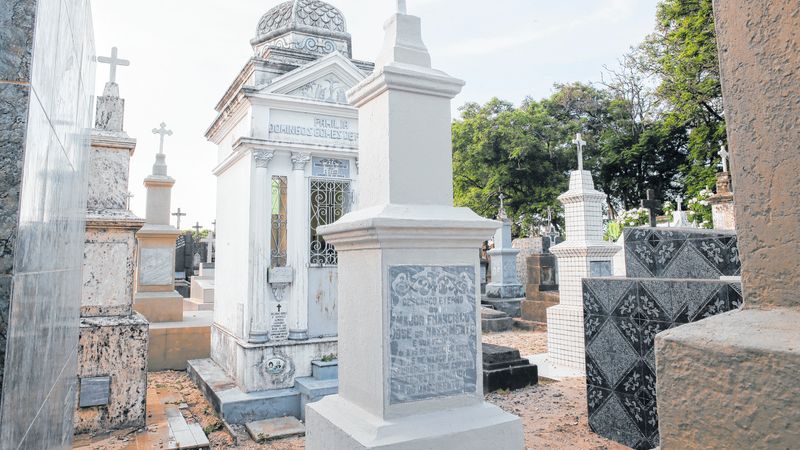Licínio Nunes de Miranda, Brazilian PhD candidate at the Department of History and participant of UFIC's Research Abroad for Doctoral Students (RAD) program awardee was very productive this past year! Licínio was able to discover the forgotten tomb of one of the most important abolitionists in Brazil, an Afro-Brazilian fisherman who was essential to the movement against slavery. The discovery was widely reported by Brazilian media, including the two main newspapers in Ceará (the Brazilian state in which he is buried), both of which point out Licínio's affiliation to the University of Florida. He was subsequently invited to write an opinion piece for one of those newspapers. He was also interviewed by local radio and TV stations. "Nothing of this would have occurred without the RAD program. I'll be forever grateful.", said Licínio.
Licínio has been working on their dissertation about the abolitionist movement in Ceará, in Brazil, which became highly celebrated because it was the first province to abolish slavery (in 1884). Moreover, there was the first time that abolitionists through organized popular effort were able to obtain a significant victory against slavery, when fishermen and dockworkers in Ceará refused to embark slaves that would be sold to other provinces in several strikes in 1881, effectively shutting down interprovincial slave trade between Ceará and the rest of Brazil. Those victories had a tremendous influence on abolitionism all over the country, leading eventually to the end of slavery nationwide in 1888. Licínio's study deals specifically with people of color in abolitionism in Ceará, including former slaves, which has barely been studied.
|
|
The most important of them all was Francisco José do Nascimento (1839-1914), nicknamed the "Sea Dragon," (see image 001)who was the main leader of those fishermen and dock laborers in the strikes of 1881. He was a person of color, of humble background, and had been a fisherman in his early years. He became one of the greatest heroes of Brazil and a key figure in the Black movement there. However, his tomb had been forgotten for over a hundred years and no one had been able to locate it, until I found it, during my field trips. The discovery was widely reported, as I mentioned, especially because it happened just before the "Day of Black Consciousness," which is celebrated nationwide in Brazil on November 20.
Recently, newspapers O POVO Diário do Nordeste, which are the main newspapers in Ceará, have both published related articles.
Congratulations Licínio! Go Global Gators!
To learn more about the UFIC's Research Abroad for Doctoral Students (RAD) program visit here


